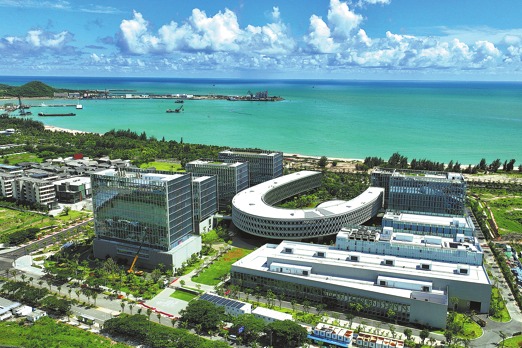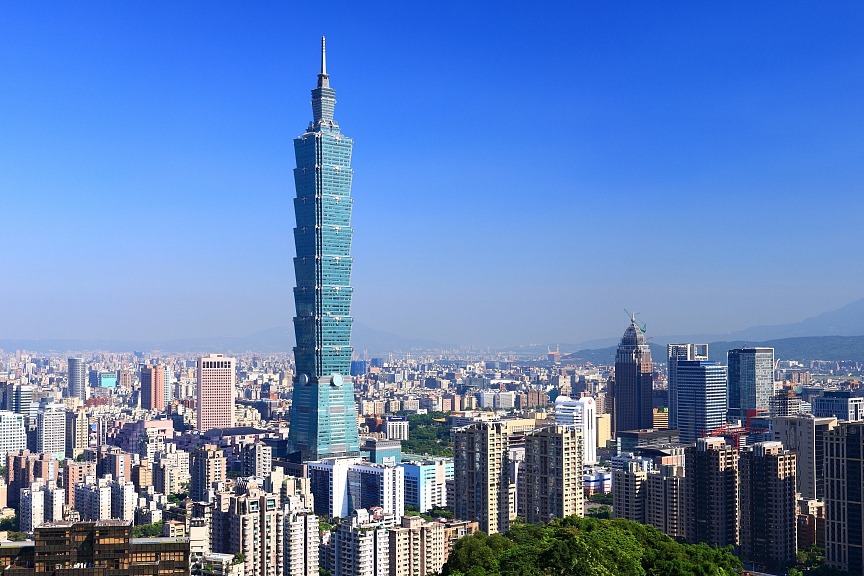Moving on


Amid the US' retreat from global leadership, China and other Global South countries are working together to build a more inclusive and peaceful world
Chinese President Xi Jinping visited Russia on May 7 to 10. During his State visit, he attended the celebrations marking the 80th anniversary of the Victory in the Great Patriotic War. This year also marks the 80th anniversary of the founding of the United Nations. These anniversaries offer not only a moment for reflection, but also for reaffirming the principles of multilateralism, peace and cooperation that underpin the postwar international order.
Recently, the global governance system came under unprecedented strain because of the disruptive impact of the United States' "America First" foreign policy. In contrast, China and a growing coalition of Global South countries are joining hands to promote stability, cooperation and shared development, offering an alternative vision of global leadership rooted in mutual respect and multilateralism.
The "Make America Great Again "agenda, initiated during Donald Trump's first term as US president and continued in his second term, marks a sharp departure from decades of US engagement in multilateral institutions and alliances. The "America First" policy places US interests above all else, including the collective well-being of the world and long-established diplomatic norms.
Central to this approach has been a systematic withdrawal by the US from its global commitments. The US withdrew from the Paris Agreement, pulled it out of the World Health Organization, and unleashed a global tariff war that is undermining the World Trade Organization.
The US administration's aggressive unilateral tariffs are igniting trade tensions with allies and rivals alike. These moves signal the US has abdicated from global leadership and is reneging on its global responsibilities. As a result, there is a breakdown of trust in the US as a stabilizing force.
The governance logic behind "America First" rests on a zero-sum worldview. Rather than seeing international cooperation as a vehicle for shared progress, this view frames global affairs as a competition where one nation's gain is another's loss. The result is not only a weakening of multilateralism but also an acceleration of global instability, especially in regions already vulnerable to conflict and economic volatility.
The effects of this unilateralist stance are reverberating across the international system. In the realm of climate governance, for example, the US' withdrawal from the Paris Agreement has eroded global momentum to address climate change and emboldened climate skeptics worldwide. The absence of US has left a gap in global climate financing and technology transfer, disproportionately affecting developing nations that are the least responsible for emissions but most vulnerable to the impacts of climate change.
In terms of geopolitical security, the US' erratic foreign policy stances have exacerbated tensions in several hotspots. In East Asia, confrontational policies toward China are fueling regional instability across the Taiwan Strait and the South China Sea. In the Middle East, the US' uncritical support for unilateral Israeli actions has undermined the diplomatic balance in the region and increased the risks of a wider regional conflict.
Perhaps most damaging, however, has been the erosion of trust in international norms and institutions. The UN, the WHO, the WTO and a number of other key global bodies have been sidelined or openly criticized, diminishing their legitimacy and capacity to mediate during times of crisis. This vacuum heightens risks for disorder and has deepened the divides between the Global North and the Global South.
Amid the US' retreat from responsible global leadership, China and other Global South countries have stepped up to promote an alternative model of international engagement — one grounded in inclusivity, multilateralism and respect for national sovereignty.
China, as a permanent member of the United Nations Security Council and the second-largest contributor to the UN budget, has reaffirmed its commitment to upholding the international order. China has actively advanced initiatives that emphasize development and cooperation, including the Belt and Road Initiative, the Global Development Initiative, the Global Security Initiative and the Global Civilization Initiative. These frameworks aim to bridge infrastructure gaps, enhance connectivity and promote peaceful development across Asia, Africa and Latin America.
Beyond China, many other Global South nations have intensified their commitment to South-South cooperation. Through platforms such as BRICS, the G20 and the G77, developing countries are increasingly asserting their voices in global governance debates. These coalitions advocate for reforms in international institutions to better reflect current global realities, such as expanding representation in the UN and making the global financial system more inclusive.
The COVID-19 pandemic highlighted the tangible benefits of this alternative approach. While many Global North countries engaged in vaccine nationalism, China and other Global South actors engaged in vaccine cooperation — donating and exporting millions of doses to low-income nations, often under the COVAX framework. This effort was not merely symbolic; it demonstrated a practical commitment to global solidarity in a time of crisis.
Despite the promise of a more equitable global order, Western powers are still skeptical of China's development path, with critics questioning whether China's initiatives primarily serve geopolitical purposes. For example, in the ongoing tariff war, the US administration has pursued a strategy aimed at "encircling China" — seeking to divide and rule the Global South while hindering efforts to establish an alternative to the US-led international system.
Notwithstanding these challenges, the opportunity to build a new form of multilateralism remains. A Global South-centered approach to governance offers several distinct advantages: it is more attuned to the needs of developing nations, rooted in principles of non-interference and mutual development, and reflective of diverse civilizational values.
Moving forward, there is a need to deepen South-South cooperation in emerging fields such as digital governance, green technology and public health. Initiatives that promote knowledge exchange, technological innovation and financial inclusion will be essential to create a more balanced and resilient international system. At the same time, there must be continued advocacy for institutional reform, so that bodies such as the UN and the World Bank can better serve the interests of all nations — not just a privileged few.
Eighty years after the defeat of fascism and the founding of the UN, the world finds itself at another historical crossroads. The challenges posed by the "America First "doctrine are testing the resilience of the postwar international order, revealing the fragility of global governance when dominated by narrow self-interest.
Yet they have also galvanized an emerging coalition of nations, led in part by China and the broader Global South, committed to forging a more inclusive and peaceful world. Through sustained cooperation, shared development goals, and a renewed commitment to multilateralism, these nations are offering a credible path forward — one that honors the legacy of the UN and the sacrifices made eight decades ago for a better and more united world.
The author is a research associate at the Malaysia-China Friendship Association and former deputy director of the Institute of China Studies at the University of Malaya. The author contributed this article to China Watch, a think tank powered by China Daily. The views do not necessarily reflect those of China Daily.
Contact the editor at editor@chinawatch.cn.


































